What It’s Like to Take Over the Statue of Liberty
Hundreds of Jewish Voice for Peace members calling for a Gaza cease-fire occupied the pedestal of the statue. This is how it happened.
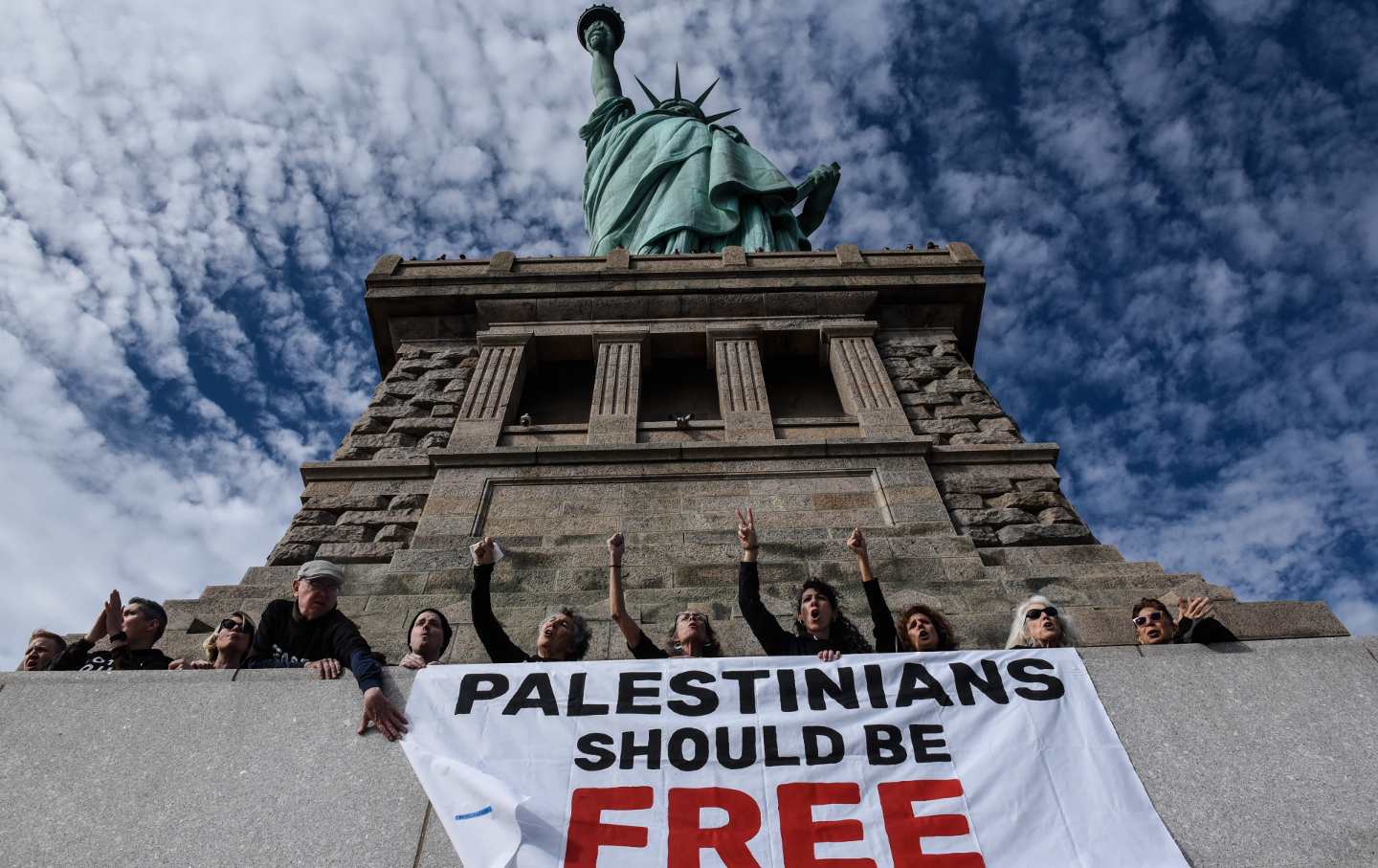
Activists from Jewish Voice for Peace occupy the pedestal of the Statue of Liberty on November 6, 2023, in New York City.
(Stephanie Keith / Getty Images)A ferry full of tourists headed to the Statue of Liberty stopped dead in the water at 1:15 pm on Monday. Lines of visitors hoping to enter the base of the statue came to a halt. A situation was unfolding on Liberty Island, they were told, and they wouldn’t be visiting the statue until it was resolved.
On the island, a few hundred yards away, about 400 protesters with Jewish Voice for Peace occupied the base of the statue. They held the entire space for just under an hour and then marched back down, commanding the attention of everyone on the island.
Seventy-seven-year-old Jane Hirschmann was one of the oldest protesters. She brought her two adult daughters to hang banners off of Lady Liberty alongside her. Civil disobedience has become something of a new family tradition, she said.
“We’ve been arrested in the [congressional building] rotunda in Washington, and in Grand Central,” she said, referring to two mass civil disobedience actions of Jewish people calling for Palestinian liberation in the past two weeks. “In Grand Central, I had all my children there, and all my grandchildren. We were 13 strong. The grandchildren left, they didn’t get arrested.” Her grandchildren, some as young as 1 year old, were a bit too young.
Hirschmann’s family was hardly the only intergenerational group on the island. Whole families joined in the protest—because, for many, their family histories compelled them to do so. Hirschmann spoke of her grandfather, who died of a heart attack on the boat to Ellis Island while fleeing the Holocaust. He watched his family scattered around the world, forced to leave their homes, and, Hirschmann said, “died of a broken heart.”
“I never got to meet that grandfather. But his memory is etched in my heart,” she said. In the mass displacement and killing of Palestinians, she sees echoes of her grandfather’s story. “He understood when he saw fascism to protect the family and get out. We are now headed towards fascism, in this country, and certainly in Israel. This genocide has got to stop.”
Getting hundreds of protesters into a heavily surveilled piece of federal land is no small feat. The group entered in staggered clumps over a period of several hours, sworn to absolute secrecy regarding where they were going. By 1:00 pm, all 400 were gathered at the base of Lady Liberty, peeling off jackets to reveal their matching T-shirts.
Some protesters wore green foam Lady Liberty crown headbands, though others played tourists less convincingly. (Many of the Jewish New Yorkers protesting remarked that they hadn’t been to the Statue of Liberty since they were children on field trips.)
About 10,000 people pass through the Statue of Liberty complex every day, making it one of the country’s most frequented national monuments, so the protesters were guaranteed a large crowd of spectators. Some made their opposition known by shouting back at the group, or by flashing a middle finger. But others, like Scottish visitors David and Sheila Miller, were thrilled.
The couple decided that taking photos with the protesters in the background was a more important goal than trying to angle the camera to get themselves and the top of the statue’s torch in the same picture.
“I think it’s a very good message they’re sending out,” Miller said. “It’s fantastic! I just think it’s good to be here to witness it. When we went up to the crown, I thought that was going to be the highlight of the day, but this was it. Being on the front lines, seeing it unfold.”
Joe Biden has endorsed the idea of a “humanitarian pause”—in which Israel’s bombs stop dropping for some brief, unspecified period in order to allow humanitarian aid into Gaza. When speaking with Israeli Prime Minister Netanyahu, he calls these “tactical pauses.” Biden has not, however, supported a full cease-fire. Eventually, in the case of a humanitarian pause, the bombs will fall again.
Worldwide protests have continued on a daily basis since the beginning of Israel’s incursion into Gaza. While activists around the globe have been accused of anti-Semitism for naming the Israeli government’s actions as genocide, UN officials and Holocaust scholars have used that same term to describe the mass killing and displacement of an imprisoned civilian population.
The United Nations says no fuel has been allowed into Gaza in the month since the Hamas attacks of October 7, meaning that hospitals and other essential services are slowly shutting down entirely. Over 10,000 Palestinians, including more than 4.000 children, have been killed in that time.
Writer Molly Crabapple was part of a flamboyantly dressed artist contingent at the protest. Like many of New York’s Jewish cultural workers, she’s a signatory of the Writers Against the War on Gaza open letter. And for Crabapple, who has worked in Gaza, this war is personal.
Popular
“swipe left below to view more authors”Swipe →“I have people I care about living in Gaza,” Crabapple said. “Ten thousand people are dead. Four thousand of them are children. Every day this genocide keeps going on, more kids and more good people are dying. This genocide needs to stop right now.”
Crabapple, photographer Nan Goldin, and writers Raquel Willis and Tavi Gevinson were among the artists present. Politicians, too, protested: The Statue of Liberty, after all, has been the site of well-known acts of civil disobedience since its unveiling in 1886. Queens Assembly member Zohran Mamdani has appeared frequently at pro-Palestine rallies in the city since the Hamas attacks of October 7 and joined the group at the statue’s base.
“I cannot vote on the question of whether or not there should be an additional 14 billion dollars in military funding. But I, like any other local politician, have a platform,” he said. “It is with that platform that…each of us should make it clear that there is no mass consent for the killing of a Palestinian child every 10 minutes. So much of the White House and federal policy in this moment is predicated on the idea that Americans, en masse, support this. We know 66 percent of Americans want a cease-fire, a majority of them oppose sending additional funding to Israel.” Now, Mamdani said, it’s time to make US policy reflect that majority.
The JVP occupation of the Statue of Liberty was just one of several anti-war actions on Monday. In St. Louis, 75 anti-war protesters with the group Dissenters locked arms and blockaded entrances to a Boeing plant where bombs dropped on Gaza are built. And in Tacoma, Wash., protesters blocked access to the port where a military cargo ship believed to be bound for Israel was docking. Some activists even took to canoes to stop the ship’s movement.
Back in New York, the protests moved to a different sort of boat: a tourist shuttle ferry.
Many of those waiting in line clapped and chanted along: “Cease-fire now!” and “Not in our names!”
The group slowly made its way out of the Statue of Liberty complex by 2:30 pm, a great cloud of black-shirted people chanting, “End the siege on Gaza now!” on their way back down onto a ferry. Once on the boat, they rehung their banners, waving down at people watching from the shore. They yelled and stomped so hard that the boat shook the whole way back to Manhattan.
Correction: This piece originally said that Molly Crabapple had lived and worked in Gaza. In fact, she only worked there.
More from The Nation

Human Rights for Everyone Human Rights for Everyone
December 10 is Human Rights Day, commemorating the anniversary of the Universal Declaration of Human Rights (UDHR), one of the world's most groundbreaking global pledges.
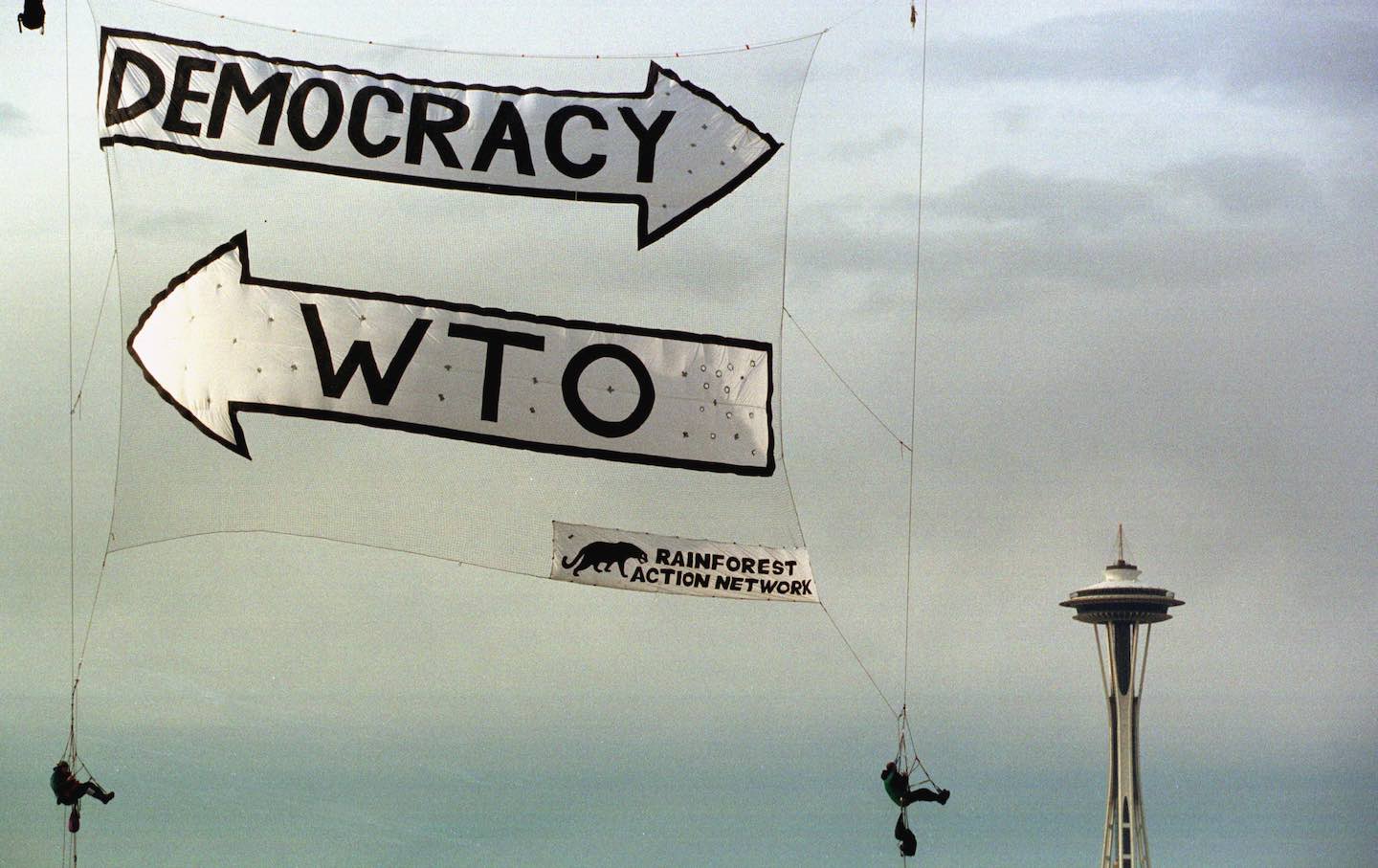
25 Years Ago, the Battle of Seattle Showed Us What Democracy Looks Like 25 Years Ago, the Battle of Seattle Showed Us What Democracy Looks Like
The protests against the WTO Conference in 1999 were short-lived. But their legacy has reverberated through American political life ever since.
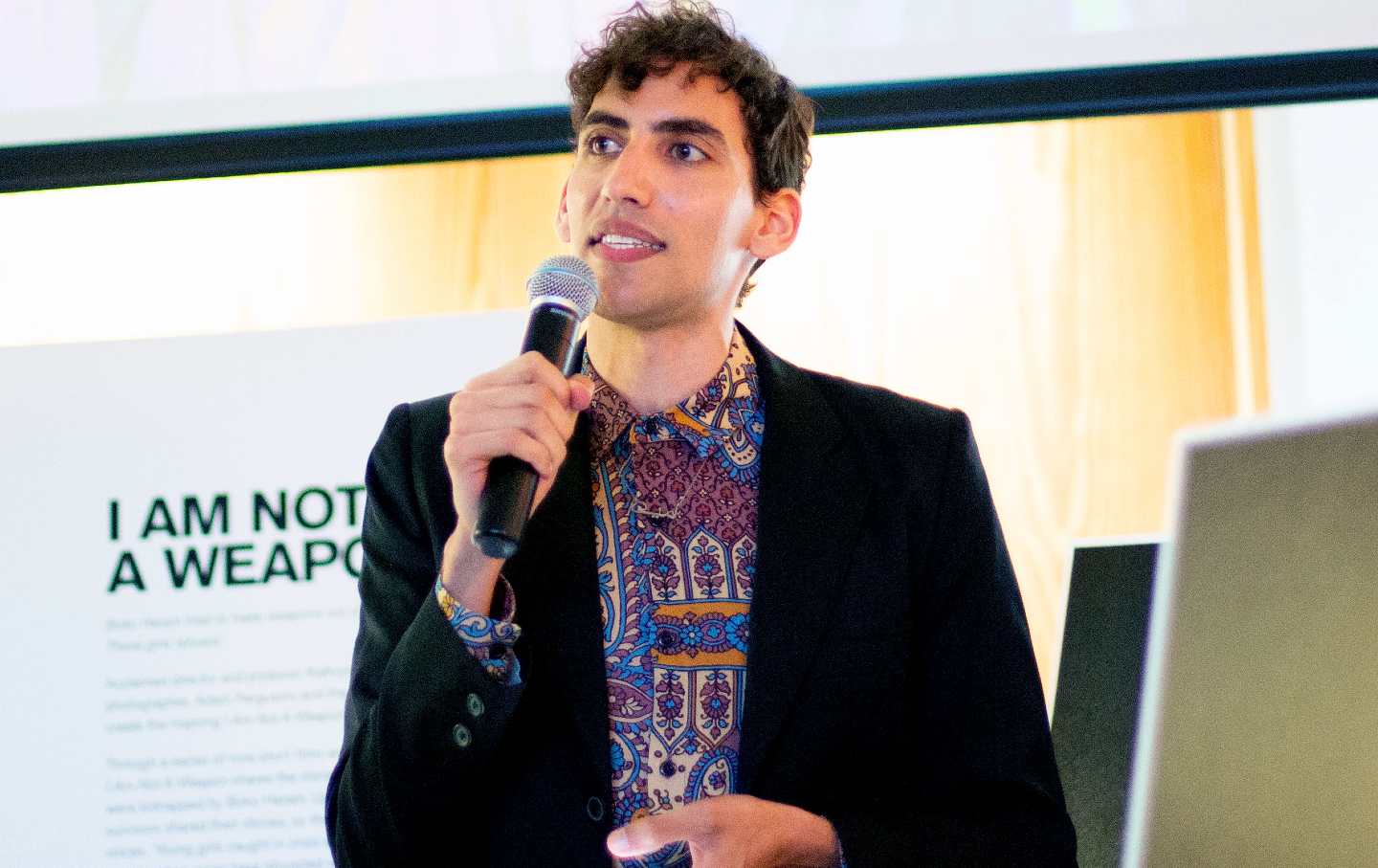
Hollywood’s Vocal Actors Union Goes Silent on a Gaza Ceasefire Hollywood’s Vocal Actors Union Goes Silent on a Gaza Ceasefire
Amin El Gamal, head of SAG-AFTRA's committee on Middle Eastern and North African members, has advocated for a statement supporting a ceasefire in Gaza—so far without success
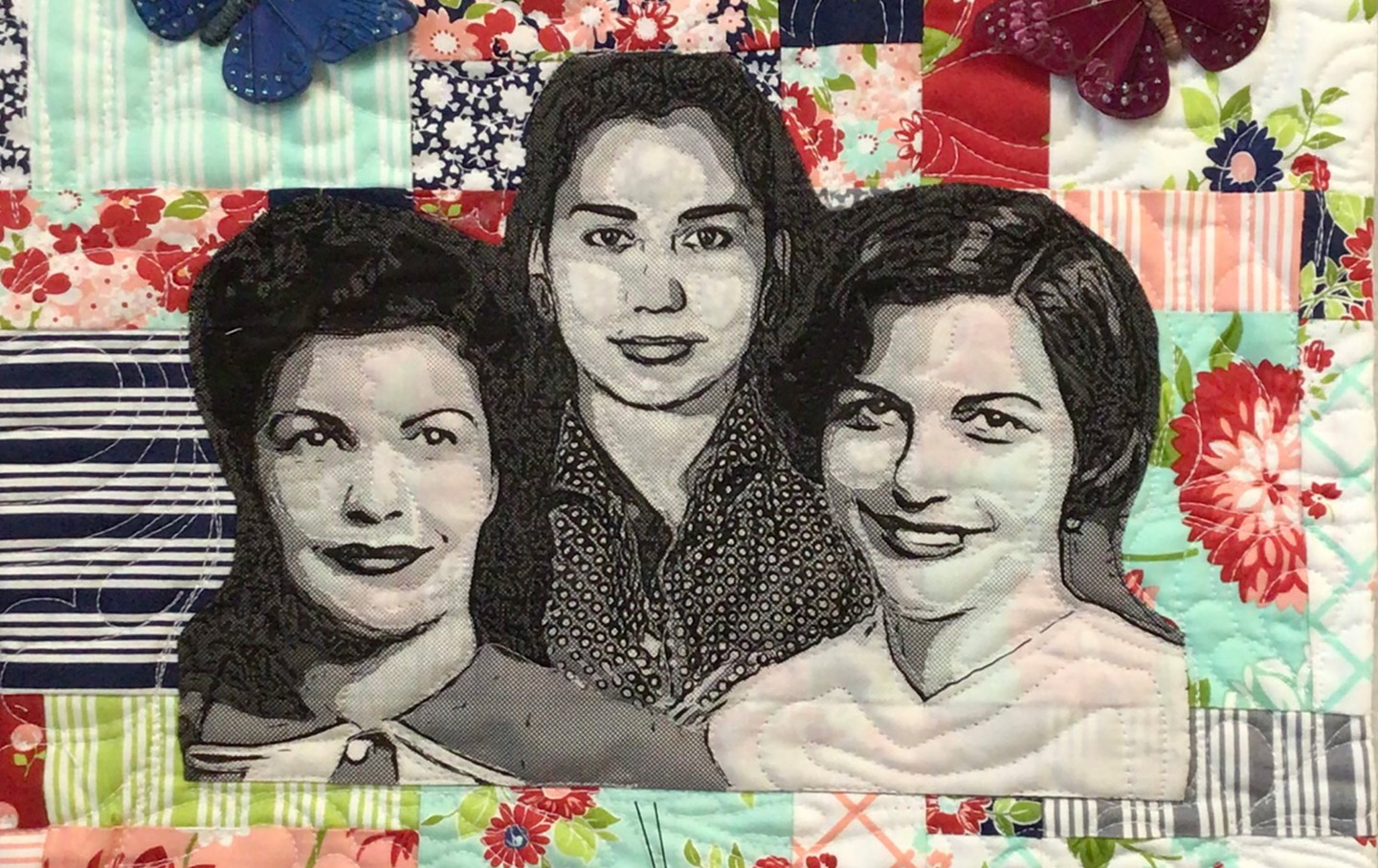
The Mirabal Sisters The Mirabal Sisters
Patria, Minerva, and María Teresa Mirabal were sisters from the Dominican Republic who opposed the dictatorship of Rafael Trujillo; they were assassinated on November 25, 1960, und...
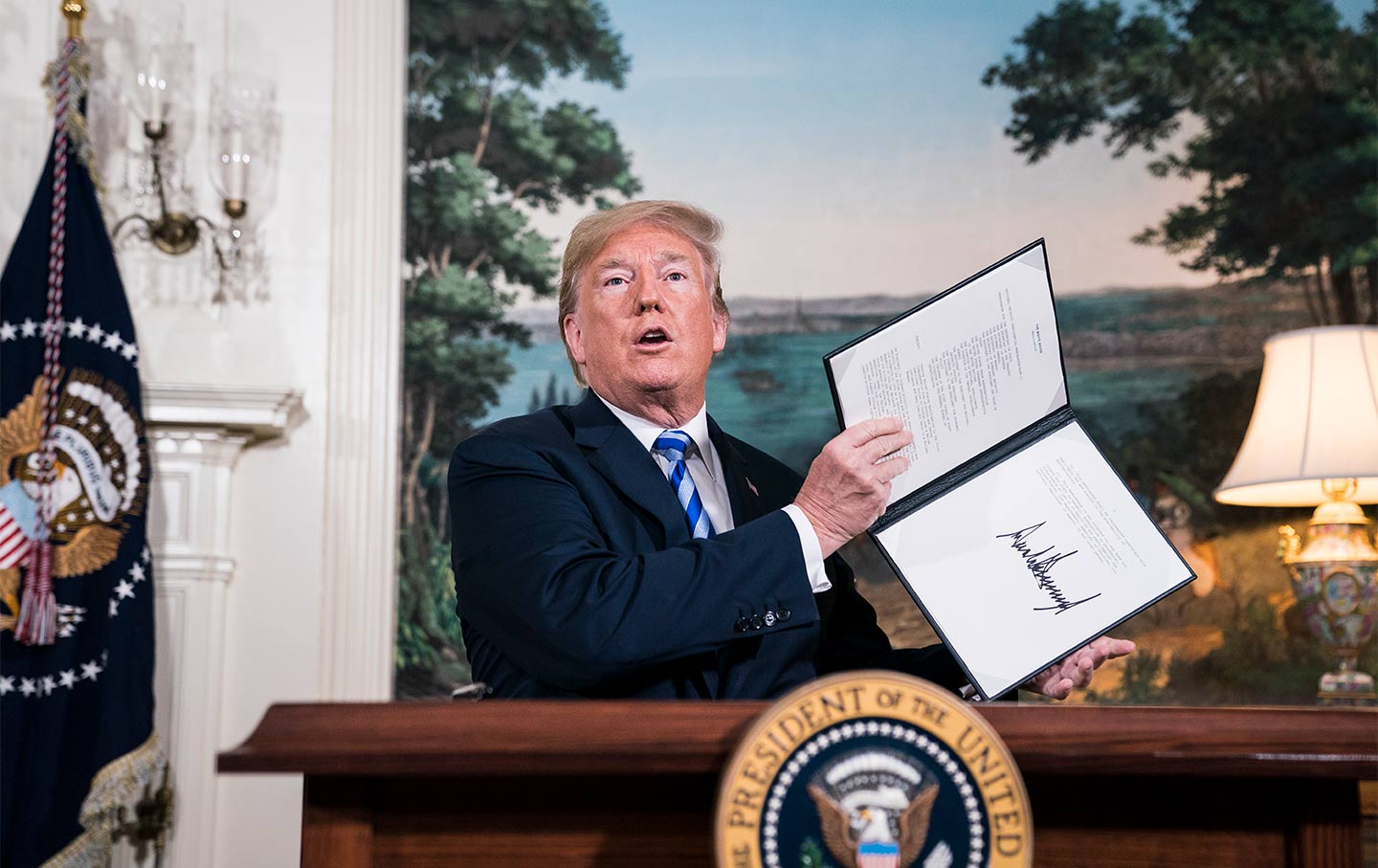
What Will a Peace Movement Look Like Under Trump’s Second Presidency? What Will a Peace Movement Look Like Under Trump’s Second Presidency?
An all-hands-on-deck approach to the coming world of Donald Trump and crew is distinctly in order.



